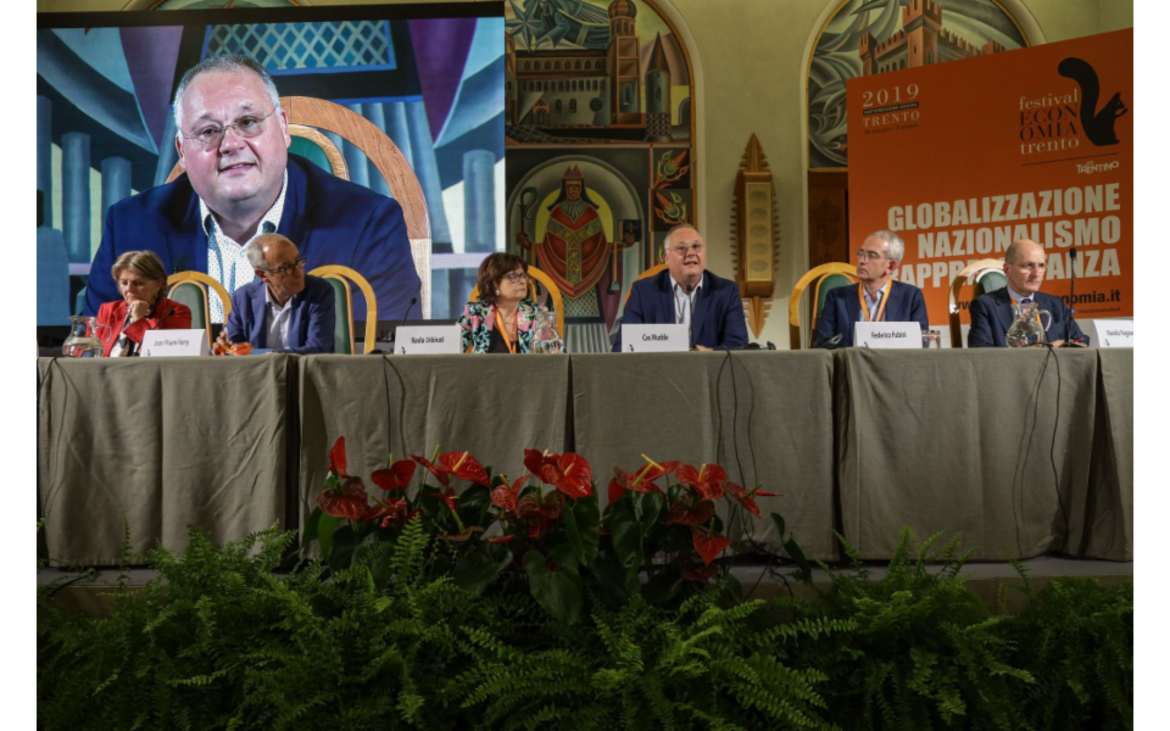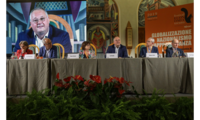
This passionate panel discussed the most recent European elections with a fresh point of view in terms of the results. The panel presented statistics from different Eurobarometer surveys that cover public opinion, confidence in the euro and other salient topics. As we have seen, European public opinion tends to polarize when we talk about trust in the European Union (EU). These particular surveys examined Italian public opinion results in comparison with Europe. According to the survey, 42% of Europe trusts the EU and 48% do not. In comparison, 36% of Italians claim that they trust the Union. Although this seems low, many other countries have lower percentages such as Greece due to the consequences felt after the economic crisis.
When debating the single currency, the panel presented that 75% of Europe supports the single currency. In fact, the consensus on the euro in Italy reached 87% which is a very high consensus due to the overwhelming distrust of local officials and the thought that the EU would help modernize the country. Since 2016, Italy has shown a growing consensus for the euro. There is currently no referendum for the single currency since the Member States a part of the eurozone are bound by a treaty. There is a stalemate currently in terms of the euro. While there is no motivation to abandon the euro, there is also no motivation to improve it and make it a mechanism of prosperity.
There was an emphasis on this idea that people vote when they feel something is at stake. All of the panelists agreed that the average EU citizens care about issues such as migration, terrorism and the public financial situation of the Member States. EU citizens and particularly, Italian citizens want defense, safety, security, joint trade union, joint migration policy and free circulation of citizens from Europe.
The discussion shifted to the idea that even though there is less trust in Europe, we need to continue to hold Europe accountable and ask for more. The panel agreed that Europe can help manage all of these topics that EU citizens desire and can improve the current situation. There is no question that without the EU, Italy would be poorer. From the outside, and even the majority of the Member States, being a part of the EU is recognized as an advantage. When asked about what he thought of the “showdown” that occurred between the pro-Europeans and the anti-Europeans, Cas Mudde shared that he believes the real story of the elections was the same story of all national elections, the story of nationalization rather than the rise of populism. He explained that populist parties did not win significantly in this election because they had already won in both 2014 and 2019. Mudde also elaborated on the idea that we see this new kind of politics due to the fragmentation that exists within the liberal camp. Mudde emphasized that being Eurosceptic does not mean one is anti-Europe. It means that one believes in the European project but recognizes the need for improvement and the idea that Europe is currently not performing as it should.
Nadia Urbinati commented consistently with the remarks by Mudde by saying that while it is true that there is an absolute majority of those who systematically criticize Europe, she does not believe that people are actually against Europe. She further reiterated that it is in the best interest of Italy to remain in Europe but also to do something different.
Overall, the panelists agreed that while populist parties did not gain a majority in the European elections, populist sentiments are continuing to grow. Therefore, we should not look at those with a critical view of Europe as being anti-Europe, but as being motivators for change and holding the European institutions accountable for delivering on the topics that are desired by the citizens.
Inglese
Watch the interview with Cas Mudde:https://youtu.be/4xxZwvsRktg
Website: https://2019.festivaleconomia.eu/home
Twitter: https://twitter.com/economicsfest
Facebook: http://www.facebook.com/festivaleconomiatrento
Instagram: https://www.instagram.com/festivaleconomia/








